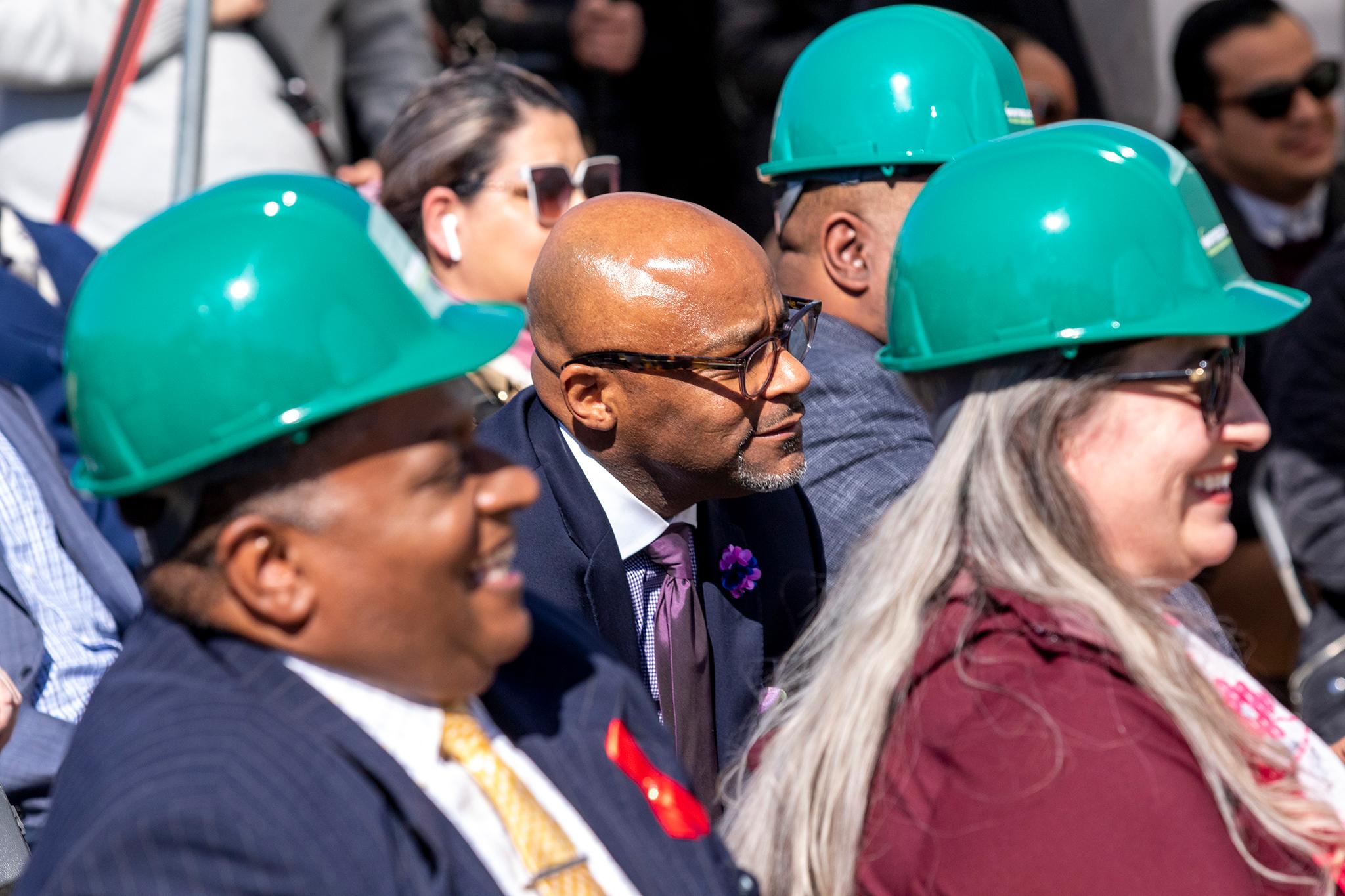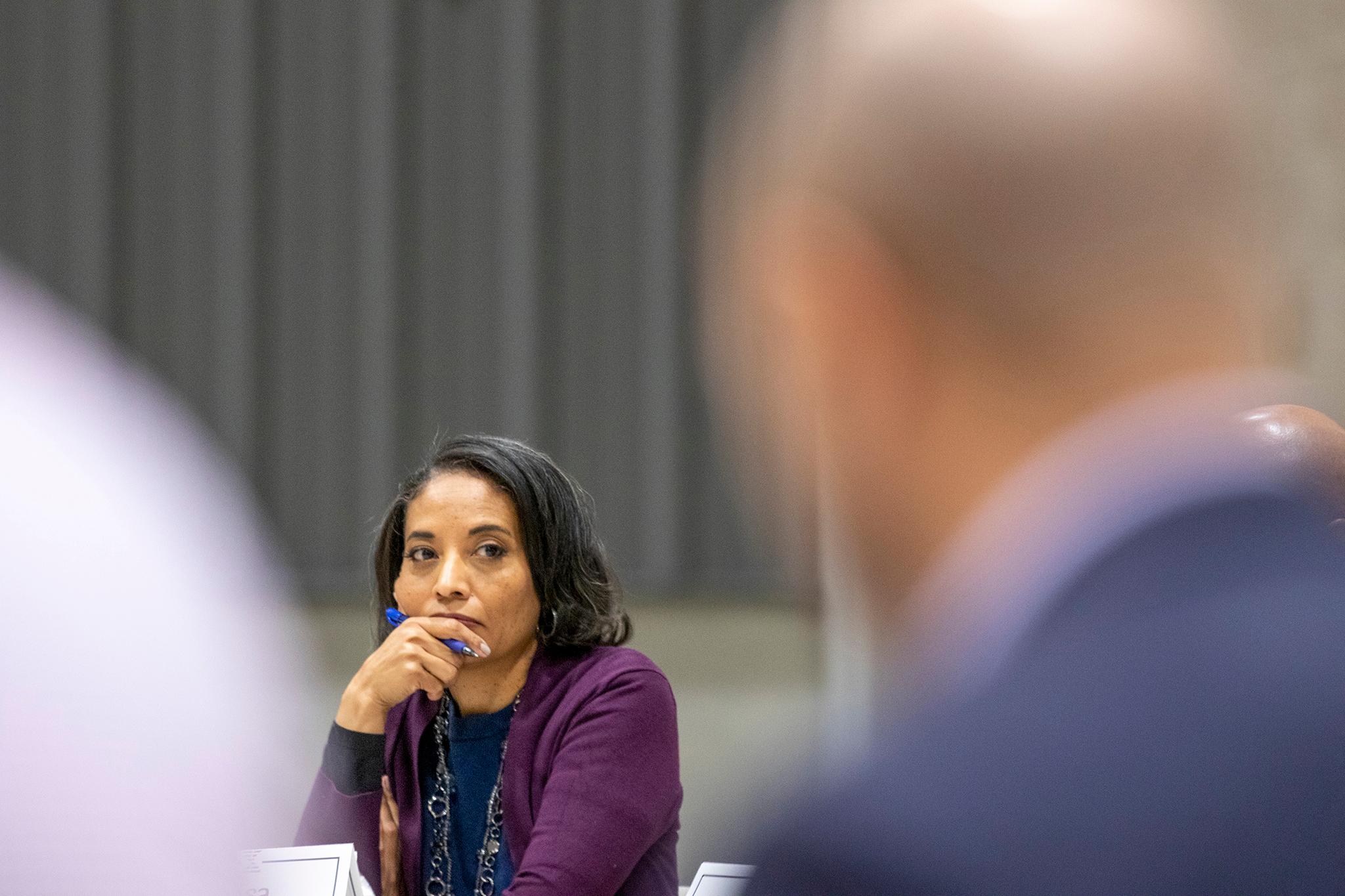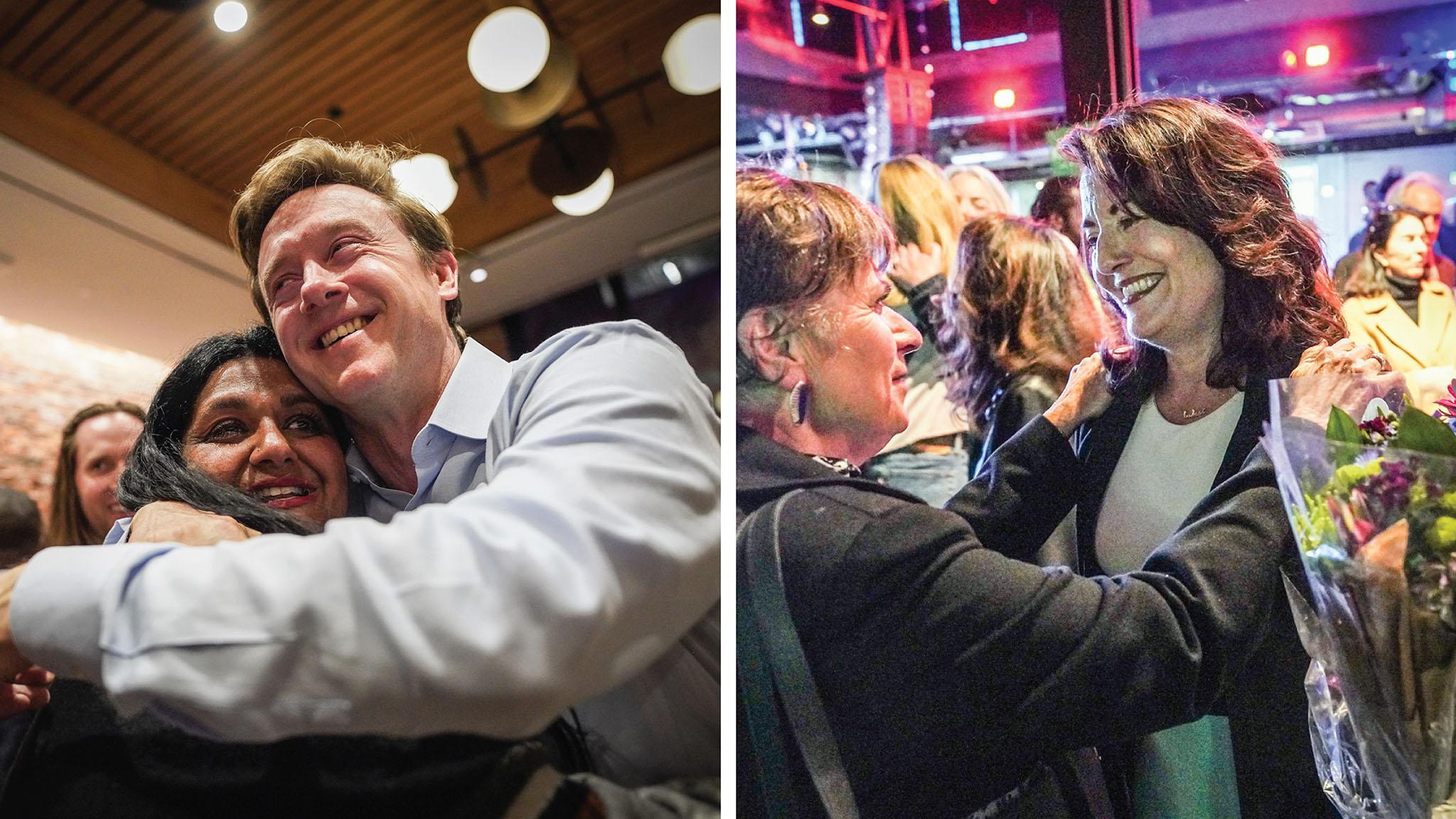Big-money-backed centrist candidates Mike Johnston and Kelly Brough have secured the most votes in the 2023 mayoral election, trouncing fellow candidates on one of the most diverse ballots in Denver history.
Johnston currently holds first place with 24.45% of the vote, Brough holds second with 20.04% of the vote, and Lisa Calderón, who hoped for an upset, has just 18.17% of the vote.
Updated numbers will be released on Friday at 2 p.m., but with just 2,400 votes to count, Calderón's chances for a surprise spot in the runoff have essentially disappeared.
The news that either Johnston or Brough -- both centrist candidates -- will be the next mayor comes as a relief to many in Denver's business and political establishment.
Brough and Johnston have cleaved toward the middle, offering an optimistic vision while gently pushing for using policing in their homelessness solutions.
Both Brough and Johnston benefited mightily from their Independent Expenditure Committees, which kept both candidates on television, raising public awareness about their platforms. Their backers came from a politically diverse coalition, but they both had money from wealthy patrons. For Johnston, those came from out-of-state billionaires. For Brough, they largely came from the development industry.
Their messaging was strategically middle of the road -- often mirroring strategies to address homelessness borrowed from Hancock's plans and policies. Neither often acknowledged that.

They are "two pillars of the political and civic establishment facing off against each other," said political commentator Eric Sondermann. And there's "probably not all that much difference politically or policy-wise between them if you dig very deep."
This year's runoff is a deviation from past elections, when candidates have had more obvious differences.
"There's either an ideological split, or if there's not an ideological split, there's a racial split. There's more of a political split." Sondermann said, noting there has not been a runoff without a candidate of color in four decades. "The runoff tends to include two very different constituencies, two very different parts of Denver, whether it's geographic parts of Denver or just political parts of Denver."
The main difference Sondermann sees between the candidates: gender. And it's significant in a year when many assumed the city would elect its first woman mayor. That historic first is still in play with Brough's candidacy.
Hancock's Chief of Staff Alan Salazar told Denverite he slept well on election night, knowing Brough and Johnston were probably headed to a runoff.
"I think it shows that the voters were looking for someone who operates from the middle," he said. "And I think the polarizing far-left political angle that some were worried about didn't materialize in Denver."
Both candidates have a reputation for working with people of various political stripes in a collaborative way, Salazar said.
"Mike Johnston as a legislator often worked with Republicans and on centrist education reform, so that's in his reputation," Salazar added. "And Kelly Brough, obviously, had experience in City Hall having worked for Mayor Hickenlooper and the Chamber. This is also somebody who has worked from the center out, and so that's my takeaway, and maybe why I slept so well last night."
While many predicted the 2023 election would be a repudiation of the Hancock administration, Salazar said, he was heartened to see leading candidates who offered policies close to the current mayor and who could carry out his legacy.
Recent bipartisan polling showed the majority of Denverites are done with Hancock. He registered a -22 net favorability rating. Salazar points to a SurveyUSA poll commissioned by 9News that shows the mayor with a 55% approval rating.
Downtown Denver has a reason to be enthusiastic about the voters' top two picks, according to David Ehrlich, the head of the Denver Theatre District.
His organization's the one that has all the art-filled digital billboards near the Denver Center for the Performing Arts and that projects experimental art on the Daniels & Fisher Tower on the 16th Street Mall.
He's happy voters landed on Brough and Johnston.
"As a stakeholder in downtown, I think they both have an awareness that we need some bold action," Ehrlich said. "From our perspective, as people focused on bringing light to downtown, we're cautiously optimistic and confident that either one of them will be good allies as we try and come out of the pandemic and continue to bring cool things to downtown."
Both candidates have a strong sense of the importance of both culture and business, which will be good for the Denver Theatre District's work, he added.
But not everybody's enthusiastic about the two runoff candidates pulling away from one of the most diverse and progressive candidate fields in Denver history.
A handful of leftist and outright Democratic Socialist candidates -- Calderón among them -- were hoping to sweep the mayor's race and gain more influence over the city. While Sarah Parady appears to have won an at-large seat and several could still be elected to City Council, they likely won't be able to upend the strong-mayor system, and push for public solutions over public-private partnerships or enact public-safety policies that critics describe as soft on crime without a mayor in line.
Progressive candidates, like fifth-place candidate Leslie Herod, Ean Thomas Tafoya, Terrance Roberts and James Walsh, offered competing visions and likely split the vote, said former Denver mayoral candidate and leftist Kalyn Heffernan.

Add up Calderón's current votes with those for Walsh, Roberts and Tafoya, and she would have bested Brough by 177 votes. Add in fellow Emerge candidate Herod, and Calderón would be leading Johnston by 12,702 votes. Of course, there's no way of knowing if all of these candidates' supporters -- or enough of them -- would have voted for Calderón.
"I'm bummed," said Heffernan, the 2019 mayoral candidate who set the agenda for debates over homelessness and accessibility that year.
"I just feel like with all this more money candidates got, I was really hoping to see more," she said.
Instead, big money won, she explained. And the two finalists from one of the most diverse ballots in Denver history are both white.
Heffernan's answer to how the left found itself without anyone in the runoff? Progressives failed to coalesce around a single candidate.
"Everybody I talked to leading up -- nobody was voting for the same person," Heffernan said. She would have liked to see either Herod or Calderón make the run-off.

Alternately, business-friendly candidate Kwame Spearman, the owner of Tattered Cover who ran a law-and-order campaign, was the only candidate to drop out of the race. He endorsed Brough, and chances are, his candidacy could have weakened her support if he stayed in the race.
Linda Templin, who has formed a committee to push Denver toward rank-choice voting, noted at a press conference on Wednesday this week that the majority of Denver voters didn't pick either Johnston or Brough.
Roughly 8% of total registered voters picked Johnston and roughly 6% picked Brough. A vast majority didn't vote. Of the people who did vote, 97,816 made a choice other than the two frontrunners. That's roughly 57%.
"The problem is in yesterday's election: 80% of the voters were irrelevant to picking the mayoral finalists," she said. "Only 40% of the voters turned out in this outdated and confusing election model. Of those voters fewer than half selected the candidates who will be on the final ballot."
What's next?
In the coming weeks, Brough and Johnston, presuming they head to the runoff, will share their competing visions for the city.
How much they actually have competing visions will be a big question.
"I think they're not that far apart, frankly, in their approach to the challenge of homelessness and drug addictions and fentanyl and crime," Salazar said. "But I've been telling people for some time, I don't think the next mayor, whoever is elected, is going to make a dramatic and significant change in these problems. It'll be incremental."
Ballots go out on May 15, and the election wraps up June 6, at 7 p.m.













